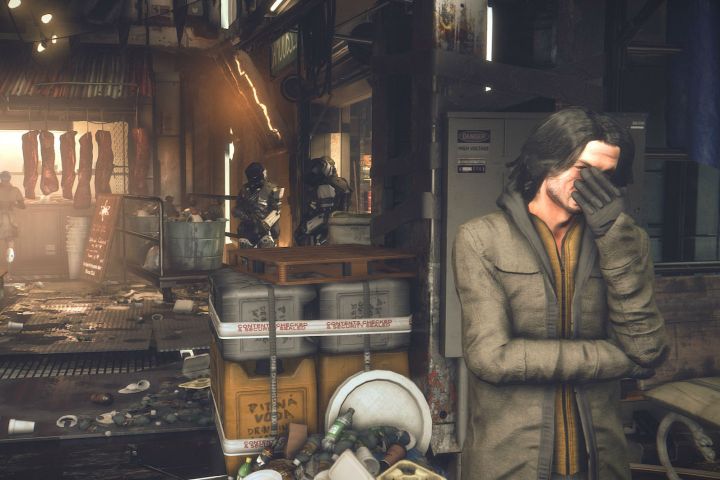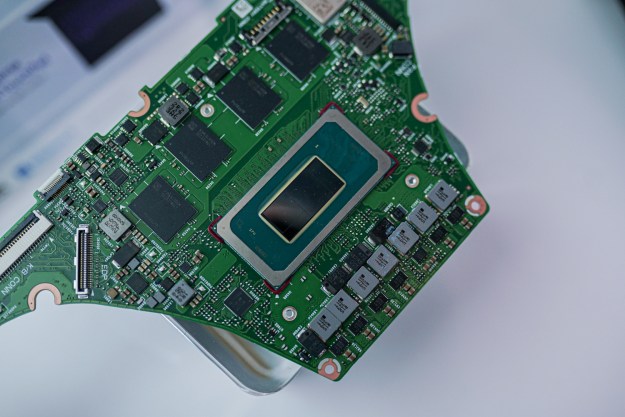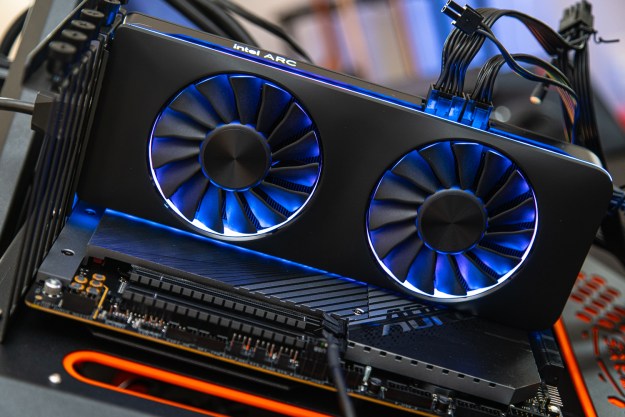
But we’re not worried about the story or the world-building today. We’re laser focused on maxing out perfect performance on your machine without screwing up the game’s realistic art style.
Ideally, we like to run games at 1,920 x 1,080, mostly due to the resolution’s popularity among PC gamers. We’re also shooting for 60 frames per second. How hard is to maintain that, at maximum detail? Harder than you might think.
The settings
Unlike other games, which use presets to control hidden values, it appears Mankind Divided is more transparent with its quality settings. The presets only control visible settings, as far as we can tell, and there are a lot of them. You can even change to one of the graphical presets, then set each individual value to a different preset, and the menu will reflect that you’ve landed there. That’s as it should be.
The first page of the graphics settings is for the most straightforward choices, like display resolution, V-Sync, screen refresh, and MSAA settings, as well as an option for stereoscopic 3D — not something we expected.
In the more detailed graphical settings you’ll find a wealth of options outside of the standard presets. The usual customers, texture quality and filtering, shadows, ambient occlusion, depth of field, and volumetric lighting all make an appearance. A number of these settings included options for On and Off, as well as an extra Ultra or Very High setting on top, so you can either turn the setting to maximum or turn it off entirely.
We’re very happy with options provided by the game. Everything you’d expect available, is available. There’s nothing about the settings to suggest the game was released simultaneously on consoles and PC.
Ready to make your PC sweat?
Deus Ex: Mankind Divided is an impressively difficult game to run. In fact, it’s more challenging than Crysis 3, the most demanding game in our usual benchmark suite. Our test system, an Asus ROG G752 laptop with a GTX 1070, performs comparably with a GTX 980 Ti-powered desktop. And it barely hits 60 frames per second average on very high settings.
If you aren’t running on the latest GPU generation, you’re going to have to turn down the resolution, or the detail, for smooth gameplay. The minimum system requirements call for either a GTX 660 or AMD HD 7870. Intel integrated users should look elsewhere for their Deus Ex fix.
The future is gorgeous
There are two big advantages to a game that’s difficult to run. The first is that it’s absolutely gorgeous. The PC version of Mankind Divided ups the ante with detailed textures, engrossing level design, and immersive lighting.
The second is that there’s usually a few settings that make all the difference between a slideshow and buttery smooth gameplay. The game’s presets provide balanced performance and fidelity changes at Low, Medium, High, Very High, and Ultra, and that’s a great place to start.
- 1. Low
- 2. Medium
- 3. High
- 4. Ultra
- 5. Very High
Beyond that, changing the MSAA settings has the largest effect on performance. Multi-sample Anti-Aliasing sounds like complicated computer mumbo-jumbo, but it’s actually quite simple. This feature essentially renders each section of pixels at a higher resolution than the game is set to display, then merges all of the samples together to create a smooth representation.

While quality increases noticeably as a result, the performance drop is just as significant. Even the maximum framerate at 2X MSAA is lower than the average framerate with the feature off. If performance is key, or the game is dragging, this is definitely the place to start.
- 1. MSAA Off
- 2. MSAA 2X
- 3. MSAA 4X
- 4. MSAA 8X
Unfortunately, nothing else provides quite the performance boost as MSAA, but there are a few more that will help optimize things a bit further.
Dropping volumetric lighting from Ultra to Off result in about a 15 percent performance increase. Unfortunately, it also kills the game’s dark and broody vibe, so you’ll have to decide if the trade-off is worthwhile.

The next best move is to kill off the depth of field effects. This only earned us a few frames per second in our testing, but there was very little noticeable decrease in quality (and some people don’t care for depth of field, anyway). You should turn this off if you need to grab a few more frames.
Seeing clearly
While Deus Ex: Mankind Divided is a tough mountain for even hardened gaming systems to climb, you aren’t alone. The game’s wealth of esoteric settings allow you to adjust to fit your card’s feature set, and the in-game benchmark lets you judge how close you’ve come to ideal without wasting time.
The graphical presets help prevent some of the weirdness that shows up as a result of mismatched settings, like the volumetric lighting setting above. Turning down MSAA is also guaranteed to smooth things out, at the cost of slightly more jagged edges.
But some systems still won’t be able to run the game at all, and that’s just a fact of life in Deus Ex. The game’s realistic graphics, moody lighting, and sweeping action is a boon for those whose rigs can hang, and a frustration for those playing below recommended spec.
Editors' Recommendations
- This gaming PC will also make you a cup of coffee
- This weird sneaker PC is on sale for less than you might think
- Warhammer 40,000: Darktide will bring your PC to its knees (and you’ll love every minute)
- You might get your Steam Deck sooner than you think
- Xbox performance indicator tells you if your PC is good enough to run games












